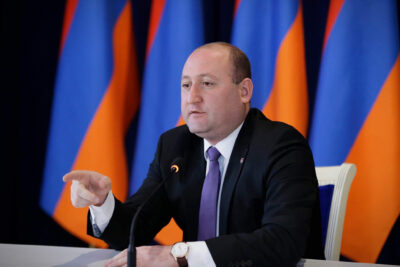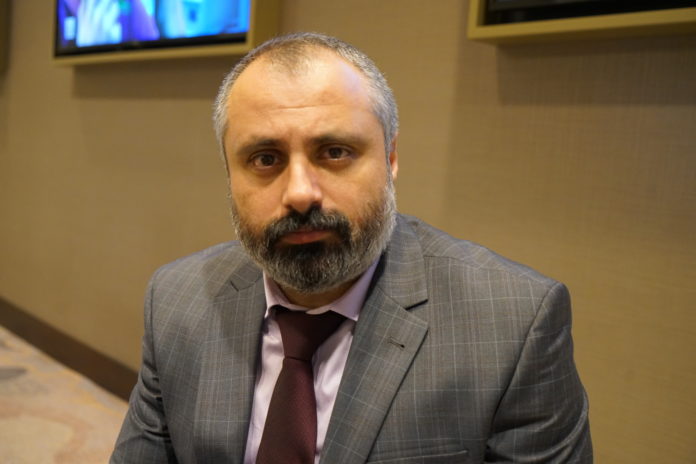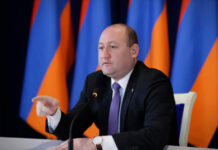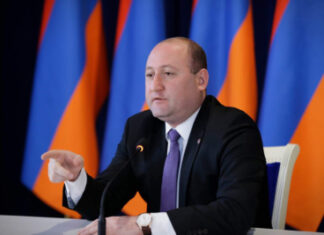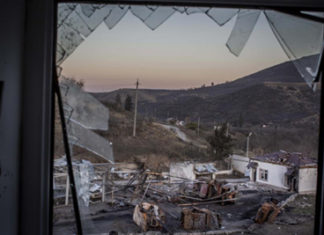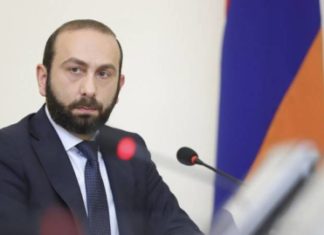GLENDALE, Calif. – Davit K. Babayan, head of the Central Information Department of the Office of the Artsakh Republic President and deputy head of the Artsakh Republic President’s Office, and doctor of historical sciences, spoke about recent developments concerning the Artsakh Republic on November 19 during his visit to greater Los Angeles with President Bako Sahakyan of Artsakh.
Babayan revealed the purpose for his visit, saying: “We are here for the [Hayastan All-Armenian Fund Thanksgiving Day] telethon but we have many other unrelated meetings, as we want to keep close ties with all Armenian communities throughout the world. This telethon is dedicated to irrigation, solar energy and similar issues. This combination of traditional and modern technologies is very important.” He later added, “The telethons are very important events. And I think it is incorrect to value them exclusively in terms of the volume of donated money… The annual telethons are much more important from the perspective of cementing ties between the diaspora and the homeland, serving as a unique device for mutual charging with national energy, common destiny, hope and dedication between Artsakh, Armenia and the diaspora.”
One of the most dramatic developments this year is the change in regime in Armenia. Babayan said that Artsakh and the Republic of Armenia are “integrated—one common homeland but two different states.” The will of the people is the most important thing, and consequently in Artsakh, during the Velvet Revolution, he said, “We were just watching what was going on in Armenia, but with special interest. Artsakh could never interfere. We wished first of all that any change taking place would occur in a peaceful way, without bloodshed or tragedy. Thank God that this happened.”
Domestic change in Armenia can affect the Azerbaijani-Armenian relationship. Babayan related that “the Armenian government continues to see the situation as before, but now insists that Artsakh should participate in the negotiations and the full-fledged format of the Budapest Summit [of 1994] should be put into place.” This insistence is a change from the previous Armenian government, which stated the same thing in a less assertive manner.
On the other hand, Babayan said, “Azerbaijan has not changed its destructive policy toward the Artsakh state.” Domestically, he said, it remains totalitarian despite recent protests in Ganja at which two policemen were killed, which indicate the level of frustrations of the Azerbaijani populace with the Aliyev regime.
As far as changes in relations between Armenia and Artsakh itself, Babayan said that normally, any change in government requires time for new personnel to establish close contacts. Yet, despite the rapid changes in Armenia, Babayan pointed out that Acting Prime Minister Nikol Pashinyan has already visited Artsakh five or six times while in office this year and contacts have been reinforced personally at the highest levels between the two states. Moreover, Pashinyan’s son is serving in the Artsakh Army, which itself is an eloquent demonstration of commitment to the relationship.
